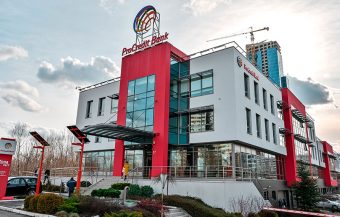Sustainable development is a phrase used by all companies in their reports today and an excellent “scenography” for sound PR stories. It often happens that sustainability is only talked about, but companies do not deal with it sincerely, strategically and systematically. This can be a serious global problem because the survival of both the planet and ourselves depends on the concrete results we achieve in the field of sustainable business.
Sustainability as a term began to be used massively in the business context at the end of the 20th and the beginning of the 21st century, when the bad effects of industry on the environment and society became more and more obvious. International standards ISO 14001 for environmental protection management and ISO 26000 for corporate social responsibility have become widely accepted. Sustainable development was first implemented in industries that had the greatest impact on the natural environment and society, such as energy, mining, agriculture, construction, textile and automotive industries. They were the first to start looking for solutions to reduce negative impacts on the environment. We are talking about heavy industry, and our current interlocutor is a representative of the banking sector. The reasons why it is so are numerous, and even more numerous are those that require the engagement of all of us.
The path of sustainability is demanding – but there is no alternative
We talked about the motives and ways in which the banking sector is involved in the global movement of sustainable business strategies with Marina Mijić, head of the Department for Sustainable Development at ProCredit Bank, who is a pioneer among financial institutions that have approached sustainability with full understanding, responsibility and a clearly set goals.
– ProCredit Bank has had sustainable banking in its development focus for more than two decades. What does that mean in practice? That we have adapted all work processes to sustainable practices: from online banking, through strictly controlled consumption of energy and all other resources in our daily work, to measuring CO2 emissions, financing sustainable and green projects, restrictive investment policies towards clients who have not set sustainable goals or started through the green transition. We are the first bank on our market to have a separate Department for Sustainable Development – we have hired engineers, ecologists, economists who provide advisory and partner support to clients when they decide to “change their business to green”. Banks today are much more than banks. It is not “only finances” that depend on us, but also the direction of a country’s economy and the various impacts that such an economy will have on the environment and on people.
IN FOCUS:
Their recent scientific validation by the international SBTi initiative testifies to how ambitious and strictly defined sustainability goals are in the entire ProCredit banking group. Short-term goals for reducing harmful emissions have been set in line with the Paris Climate Agreement, and ProCredit Group is approaching them very decisively. For the sake of comparison, 500 large world companies did not pass this same validation, which speaks of the high standards that ProCredit sets for itself and for its clients. As Marina Mijić emphasizes – the path is demanding and complex, but there is no alternative!
Man is the “central figure” of sustainability

When it comes to sustainability, most people think of the Green Agenda and the measures companies take to protect the environment. But at the center of the concept of sustainability is man. This statement is true in two respects. First, sustainable practices are created and managed by humans. The survival of the planet depends exclusively on the awareness and commitment of man to solving the problem of pollution, high gas emissions, and energy efficiency. Everything is in the hands of man.
On the other hand, sustainable business implies taking care of people to an equal extent through: healthy and stimulating working conditions, open and transparent communication with them, development of skills and knowledge of employees in order to realize their work potential, equal rights for everyone within the company. Sustainability also implies taking care of people from the immediate and wider social community, especially social groups for which it is necessary to create a specific approach in the provision of financial services.
How important the position of man is for the sustainable future of business, and even the planet itself, is evidenced by a very interesting point of view shared with us by Marina Mijić – The world, apparently, is obsessed with artificial intelligence and all that it can do instead of man. After fascinating us, AI started to scare us. In such an atmosphere of AI dominance, companies are increasingly dedicated to people, their feelings, their motivation, the balance of business and private life, stimulating programs for their comprehensive development. The sustainability model is essentially humane, which means that it seriously counts on people!
ProCredit Bank
The text was published in To the magazine of the Energy Portal, NATURE CONSERVATION.
Source: energetskiportal.rs


